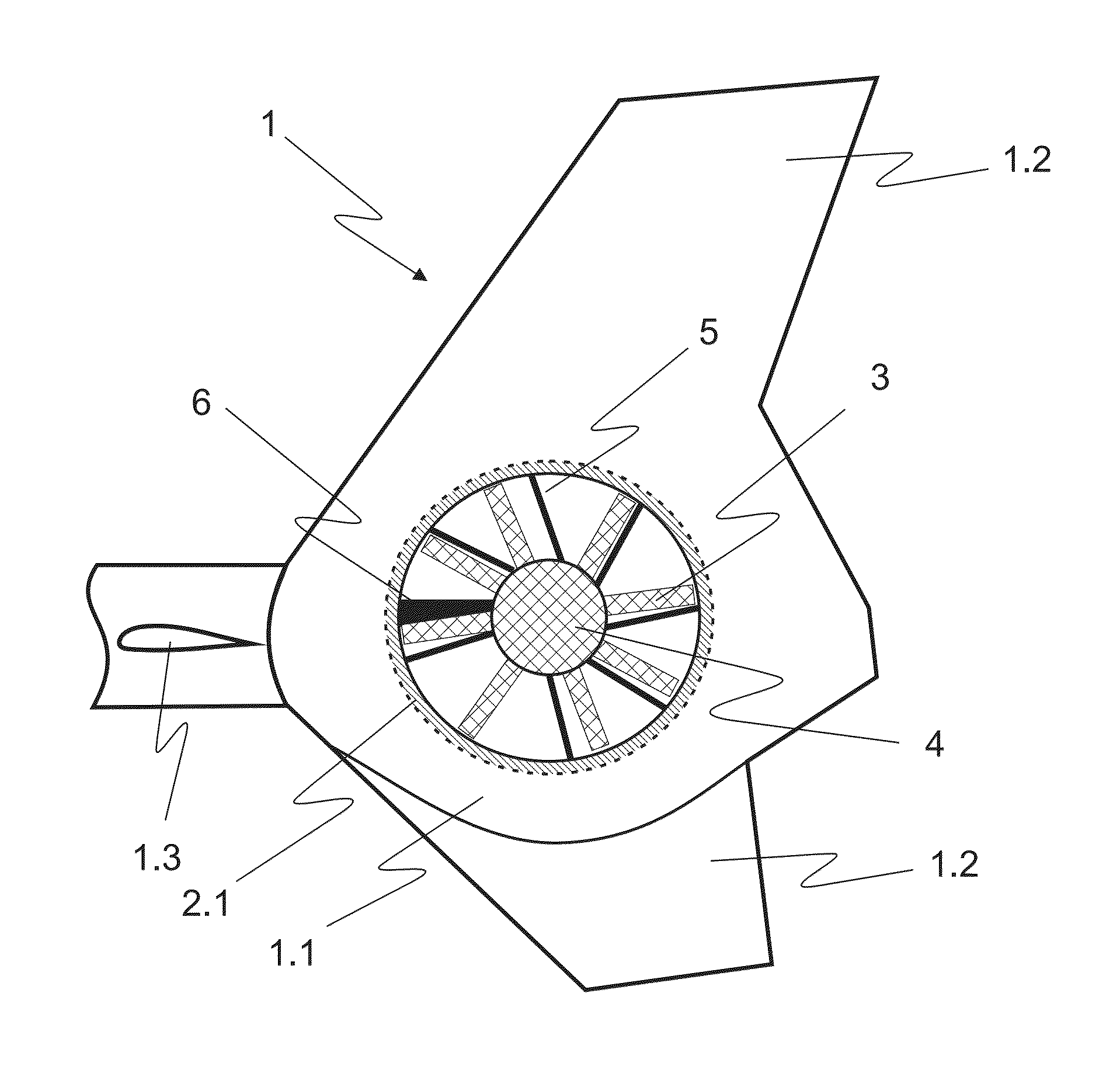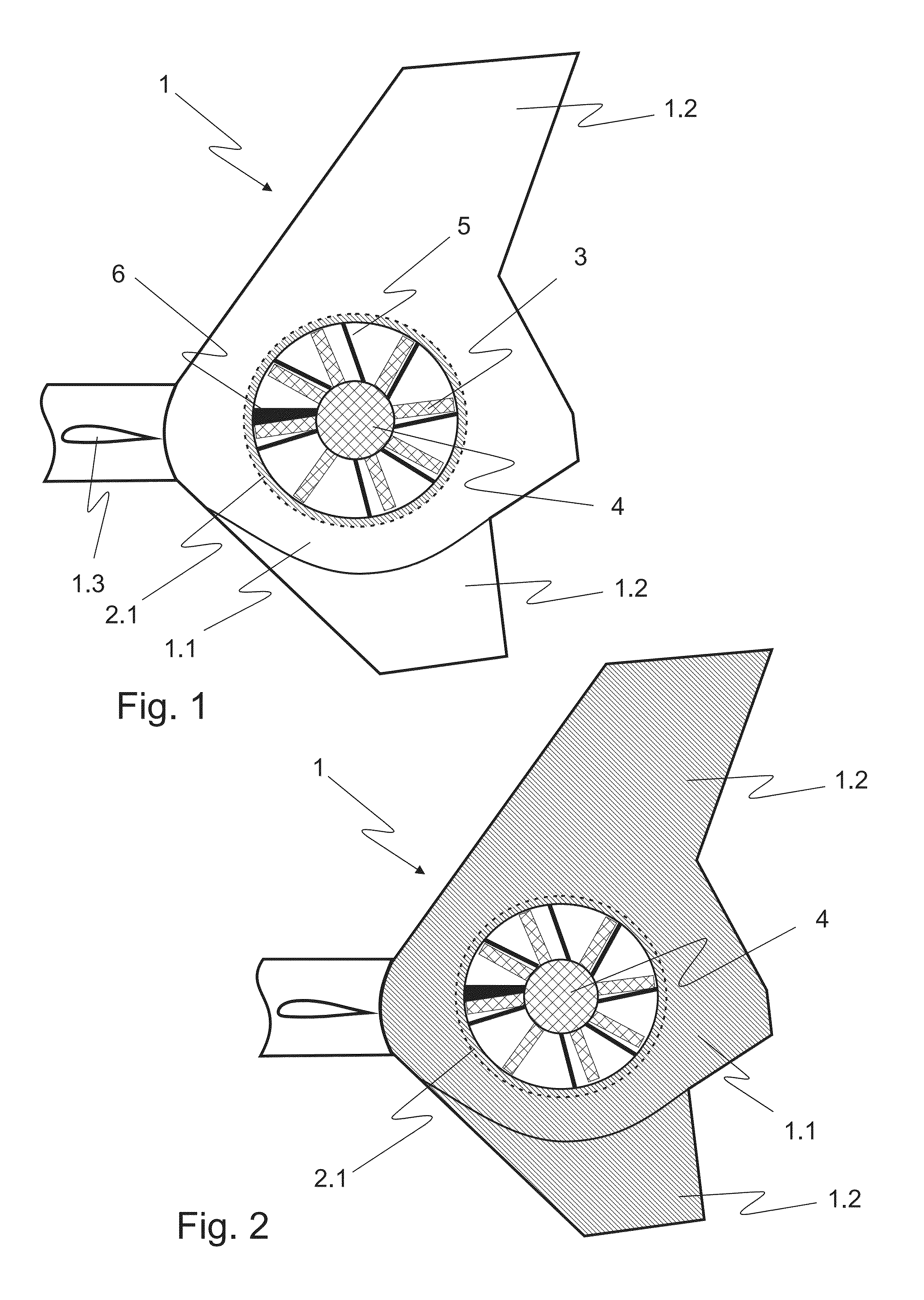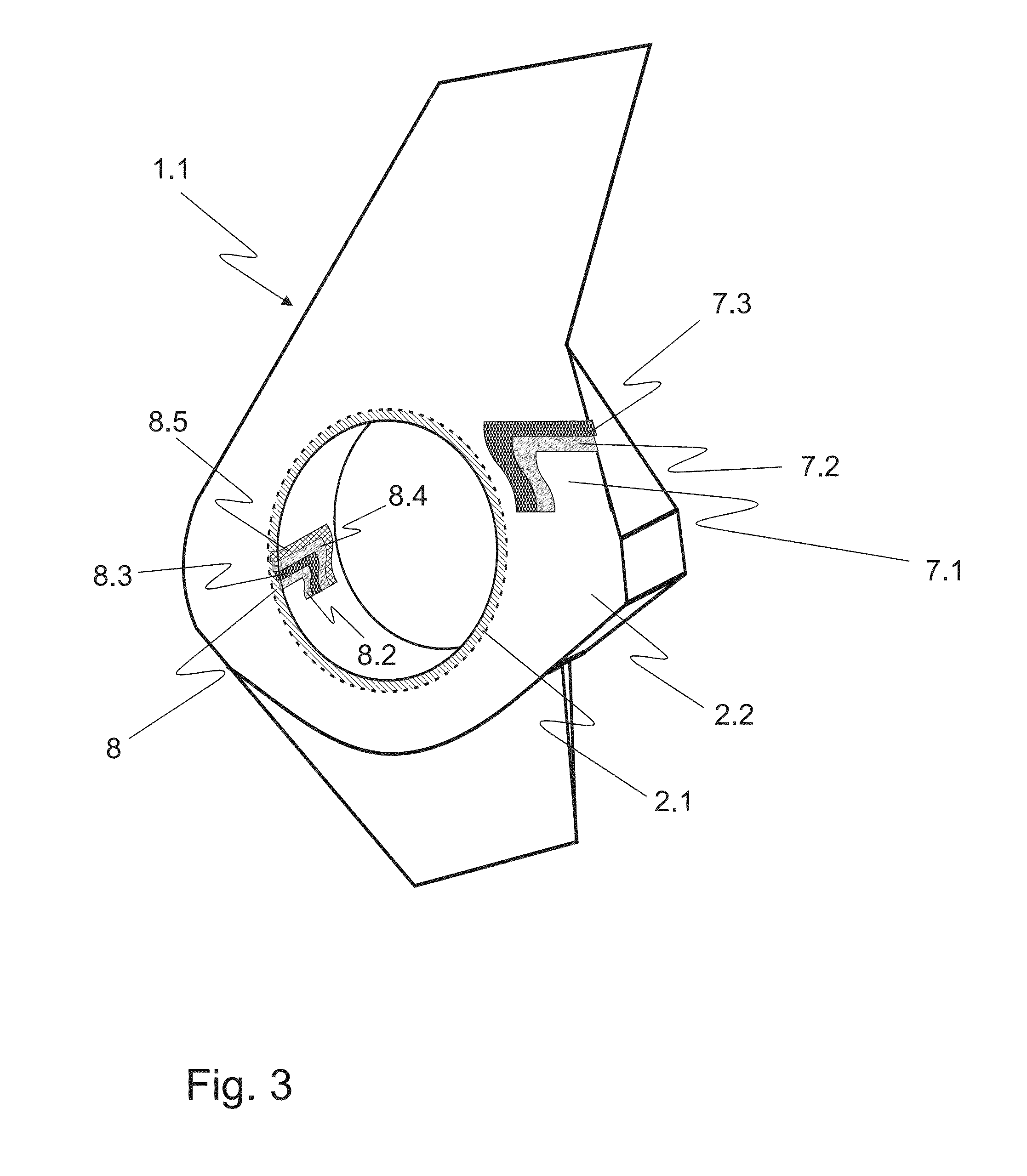Empennage of a helicopter
a helicopter and empennage technology, applied in the field of empennage/fairing structure of helicopters, can solve the problems of additional noise sources, non-optimized shrouded tail rotors emitting still significant amounts of noise to the back and sides of the helicopter, and all helicopter anti-torque systems produce additional noise to the noise of the main rotor, so as to reduce the overall sound level of the empennage of the helicopter
- Summary
- Abstract
- Description
- Claims
- Application Information
AI Technical Summary
Benefits of technology
Problems solved by technology
Method used
Image
Examples
Embodiment Construction
[0036]According to FIG. 1 a tail boom 1 of a helicopter has an empennage 1.1 comprising a ducted counter-torque device with a multi-blade rotor 4 with rotor blades 3 inside a shroud 2.1. The empennage 1.1 comprises furthermore shrouded vertical tail fins 1.2 for assisting in yaw control. The rotor 4 is actuated by an actuation shaft 6 mounted at the tail boom 1. Two horizontal stabilizers 1.3 are situated left and right to the tail boom 1 for pitch control. Flow-straightening stators 5 are positioned downstream from the rotor 4 inside the shroud 2.1. The flow-straightening stators 5 consist of stationary vanes disposed substantially in a star configuration parallel to the plane of rotor 4.
[0037]The shroud 2.1 containing the ducted tail rotor 4 is sheathed with a composite structure (cf. FIG. 5b) for damping vibrations and broad-band noise produced from the operating rotor 4.
[0038]According to FIG. 2 corresponding features are referred to with the references of FIG. 1. In addition to...
PUM
 Login to View More
Login to View More Abstract
Description
Claims
Application Information
 Login to View More
Login to View More - R&D
- Intellectual Property
- Life Sciences
- Materials
- Tech Scout
- Unparalleled Data Quality
- Higher Quality Content
- 60% Fewer Hallucinations
Browse by: Latest US Patents, China's latest patents, Technical Efficacy Thesaurus, Application Domain, Technology Topic, Popular Technical Reports.
© 2025 PatSnap. All rights reserved.Legal|Privacy policy|Modern Slavery Act Transparency Statement|Sitemap|About US| Contact US: help@patsnap.com



